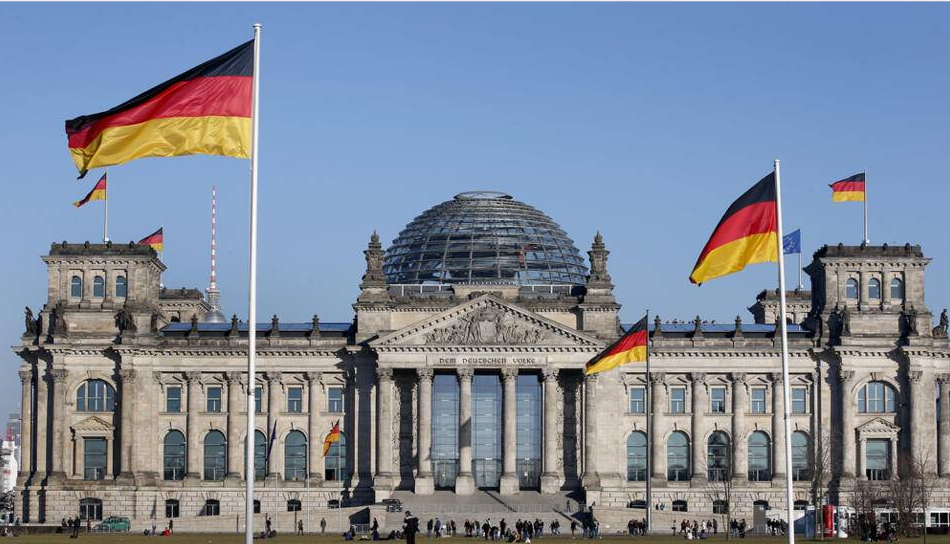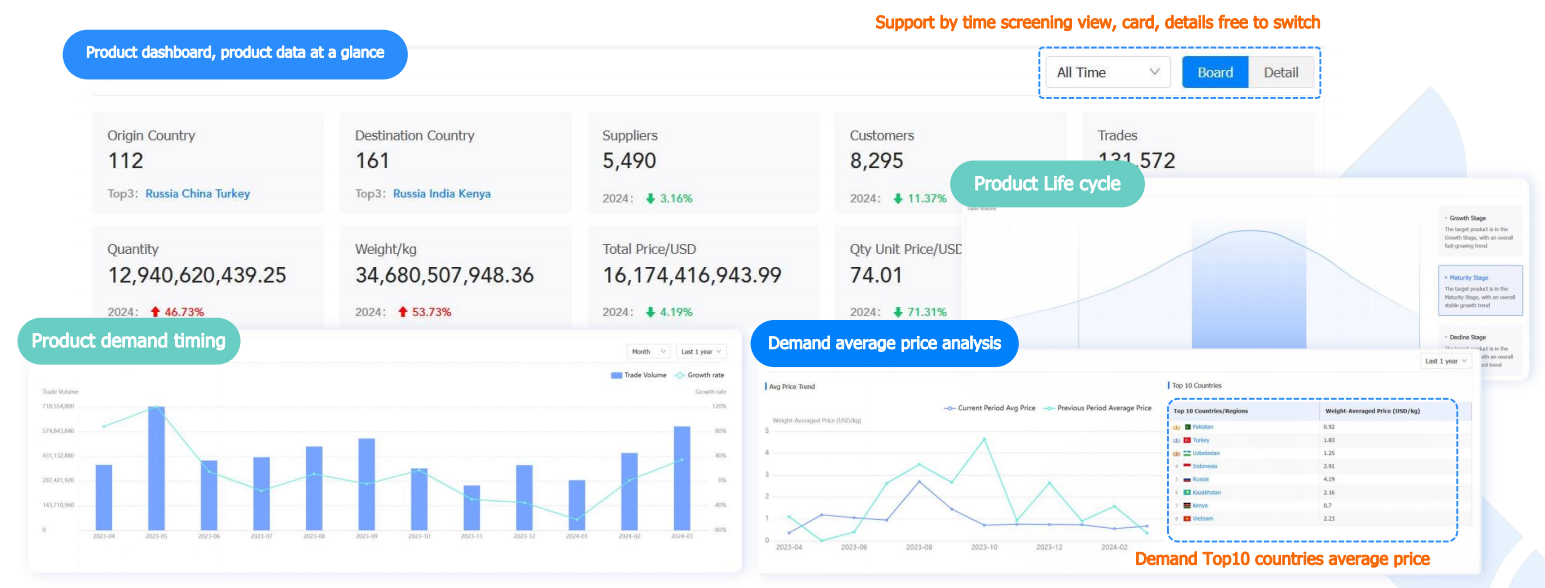 Market Insights
Market Insights
 05-08-2024
05-08-2024
Germany, as Europe's largest economy and a global industrial powerhouse, presents a dynamic market for international exporters. Its robust industrial base, high living standards, and commitment to innovation create a diverse range of opportunities for businesses looking to export to Germany. If you're considering exporting to Germany, here are some of the best products to focus on:

1. Automotive Parts
Germany is renowned for its automotive industry, home to some of the world's leading car manufacturers, including Volkswagen, BMW, and Mercedes-Benz. The demand for high-quality automotive parts and components is substantial. Products such as engine components, electronic systems, and specialized tools are sought after. For those looking to export automotive parts to Germany, ensuring compliance with stringent European standards and demonstrating innovation and durability are crucial.
2. Machinery and Equipment
The German manufacturing sector is a global leader, making it a prime market for industrial machinery and equipment. Precision engineering, automation equipment, and advanced manufacturing tools are highly valued. Companies aiming to export machinery and equipment to Germany should focus on high standards and technological advancements to meet the demands of Germany's highly developed industrial landscape.
3. Pharmaceuticals and Chemicals
Germany's pharmaceutical and chemical industries are among the most advanced globally, with a continuous demand for innovative and high-quality products. Pharmaceuticals, including prescription drugs and over-the-counter medications, as well as specialty chemicals used in various industries, are in demand. Exporters of pharmaceuticals and chemicals to Germany must comply with rigorous German and European regulations to succeed in this sector.
4. Electronics and Electrical Equipment
The electronics sector in Germany is vast and diverse, with a strong emphasis on quality and technological advancement. Products such as semiconductors, sensors, and high-tech components for telecommunications and computing are highly sought after. Companies planning to export electronics and electrical equipment to Germany should ensure their products meet high standards and showcase cutting-edge technology.
5. Food and Beverages
Germany's food and beverage market is characterized by its diversity and openness to international products. Specialty foods, organic products, and premium beverages such as wines, spirits, and gourmet foods have strong market potential. Those looking to export food and beverages to Germany should understand local preferences and adhere to food safety regulations to gain a competitive edge.
6. Renewable Energy Technology
Germany is a global leader in renewable energy and sustainability. The country has made significant investments in wind, solar, and other renewable energy technologies. Products related to energy efficiency, such as solar panels, wind turbines, and energy storage solutions, align well with Germany's commitment to green energy. Companies interested in exporting renewable energy technology to Germany can capitalize on the country’s focus on sustainability.
7. Fashion and Luxury Goods
Germany's fashion and luxury markets are vibrant, with a growing demand for high-quality apparel, accessories, and luxury items. Exporters of premium fashion products should focus on quality, design, and brand reputation to appeal to the discerning German consumer. Those looking to export fashion and luxury goods to Germany should be aware of the competitive market and strive to meet high consumer expectations.
8. Medical Devices
With a highly developed healthcare sector, Germany is a significant market for advanced medical devices and technology. Products such as diagnostic equipment, surgical instruments, and patient monitoring systems are in high demand. Exporters of medical devices to Germany need to ensure compliance with German medical regulations and demonstrate technological innovation to succeed.
Conclusion
Exporting to Germany offers numerous opportunities across a wide range of sectors. Success in this market requires an understanding of local preferences, adherence to regulatory standards, and a commitment to quality. By focusing on key product areas such as automotive parts, machinery, pharmaceuticals, electronics, food and beverages, renewable energy technology, fashion, and medical devices, businesses can tap into Germany's thriving economy and establish a strong presence in one of the world's most important markets. For those looking to export to Germany, understanding these key sectors and adhering to local standards will pave the way for successful market entry and growth.
360° Product Intelligent Analysis Provides You with Insights into Performance Growth
Utilizing Tendata's dashboard, which displays data on the number of origin countries, destination countries, customers, suppliers, etc., helps enterprises comprehend the global trade overview of products. Through multi-dimensional intelligent analysis, including product life cycle, average price analysis, and product supply time, it assists enterprises in predicting future performance growth points.
There's no need for manual analysis of the product overview; dynamic monitoring of volume and price uncovers potential growth points at a glance.

Category
Leave Message for Demo Request or Questions


 T-info
T-info T-discovery
T-discovery

 My
Tendata
My
Tendata Market Analysis
Market Analysis Customer
Development
Customer
Development Competitor
Monitoring
Competitor
Monitoring Customer Relationship
Customer Relationship




































































































































